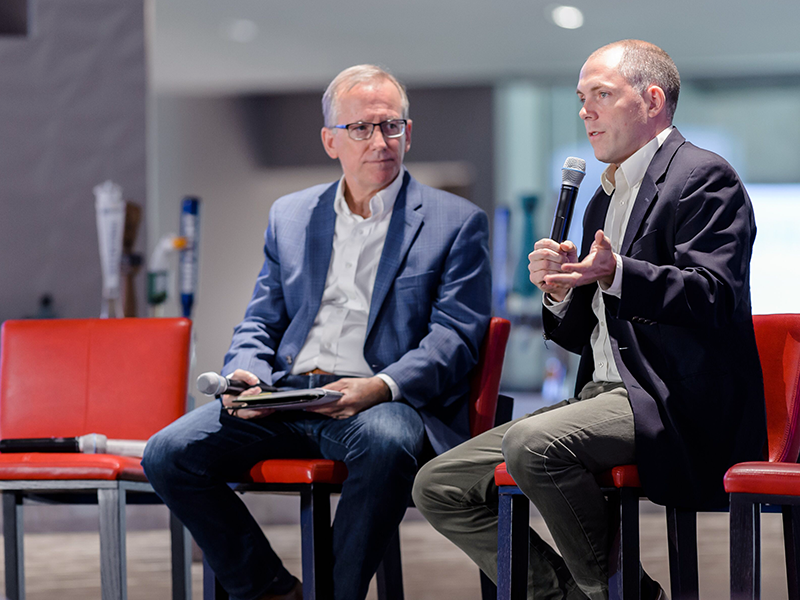
Breakthrough 2019 – What Makes Communities Thrive?
Breakthrough 2019 – What Makes Communities Thrive?
American civil society is broken. So many Americans live fragmented lives, disconnected from the institutions and associations that once characterized American life and brought people of all economic classes together—everything from churches and synagogues to rotary clubs and bowling leagues. Today, so many Americans—particularly from the poor and working class—face life alone.
But what can be done to change that dynamic?
Defining Social Capital Tim Carney, best-selling author of the new book Alienated America: Why Some Places Thrive While Others Collapse, shared some solutions during a keynote Q&A at Breakthrough 2019.
Tim Carney, best-selling author of the new book Alienated America: Why Some Places Thrive While Others Collapse, shared some solutions during a keynote Q&A at Breakthrough 2019.
The problem of alienation in America extends far beyond economics—as crucial as economics are. The problems are deeply social and relational. “It’s a lack of belonging, but it’s more than that. People are disconnected and they don’t even see the point of being connected in the first place,” Tim shared.
Community Solutions
The solution? It must come locally and through individual lives. This admonition from Tim was the perfect setup for what we heard the rest of the day during Breakthrough—from local, on-the-ground organizations in Atlanta and across Georgia that are renewing civil society one life at a time.
Check back soon for more video content from Breakthrough 2019!

 Randy encouraged Breakthrough attendees to consider a different kind of soil: “The conditions of our homes and our communities.”
Randy encouraged Breakthrough attendees to consider a different kind of soil: “The conditions of our homes and our communities.”
 Philip Ross, of
Philip Ross, of  Ana Rector, of
Ana Rector, of  Jim Hollinsworth, of
Jim Hollinsworth, of 
 Renewing civil society
Renewing civil society





